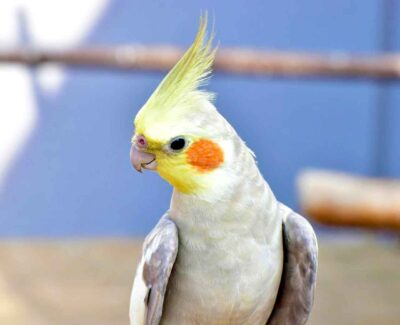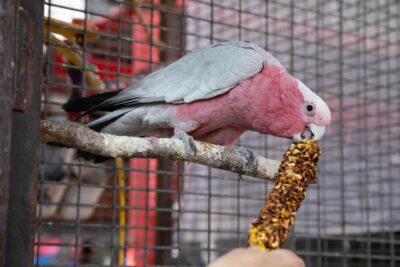Budgeting for a Pet Bird
Pet birds can bring many years of joy and companionship to your life—but as with any other pet, purchasing and caring for a bird requires an investment of time and money. While the specific costs may vary greatly depending on the type of bird you choose, understanding the different expenses involved can help you create a budget to provide your feathered friend with the best possible care, without straining your wallet.
To learn more about budgeting for a pet bird, keep reading or watch the following video to hear some general guidelines from avian experts Dr. Kemba Marshall, DVM, DABVP (Avian) and Barry Wisebram!
What are the Costs of Owning a Pet Bird?
The first cost to consider is that of acquiring a pet bird. In general, smaller birds—such as parakeets, finches, and canaries—cost less than their larger counterparts, with African Greys, cockatoos, and macaws at the pricier end of the spectrum. To learn more about budget-friendly birds, check out our recent blog post.
Once you’ve brought a new bird into your home, there are various costs associated with its ongoing care and maintenance. The most consistent cost will likely be food, which can also vary based on the type and size of bird. As Barry explains in the video, some of the higher costs over time will come from the fresh fruits and vegetables you might feed your pet. However, since birds don’t eat much compared to other animals, their food-related costs should be relatively low.
Another crucial budget item related to your bird’s health and well-being is the cost of veterinary care. As Dr. Marshall explains, a professional avian vet visit at least once a year is essential, regardless of the type or age of your bird. In addition to offering expert healthcare advice, avian vets can provide invaluable insights on your bird’s behavior, socialization, and numerous other topics that can help you ensure a long, happy, and comfortable life for your pet.
A final key expense that Barry and Dr. Marshall discuss in the video relates to your bird’s habitat. From simple cages to large aviaries, the types of habitats available are as varied as birds themselves—so the cost will greatly depend on the size of your bird and your own style preferences. While Barry says there’s an option for every budget, he cautions against choosing cages that are overtly ornate or made for decorative rather than functional purposes. In addition to being unnecessarily expensive, these types of cages are often difficult to keep clean, and may even be unsafe for your bird.
Once you’ve started planning a budget for owning a pet bird, the next step is to find your feathered soulmate! Check out our locator tool to find birds available in your area, or take our matchmaker quiz to explore types that may be right for you.





